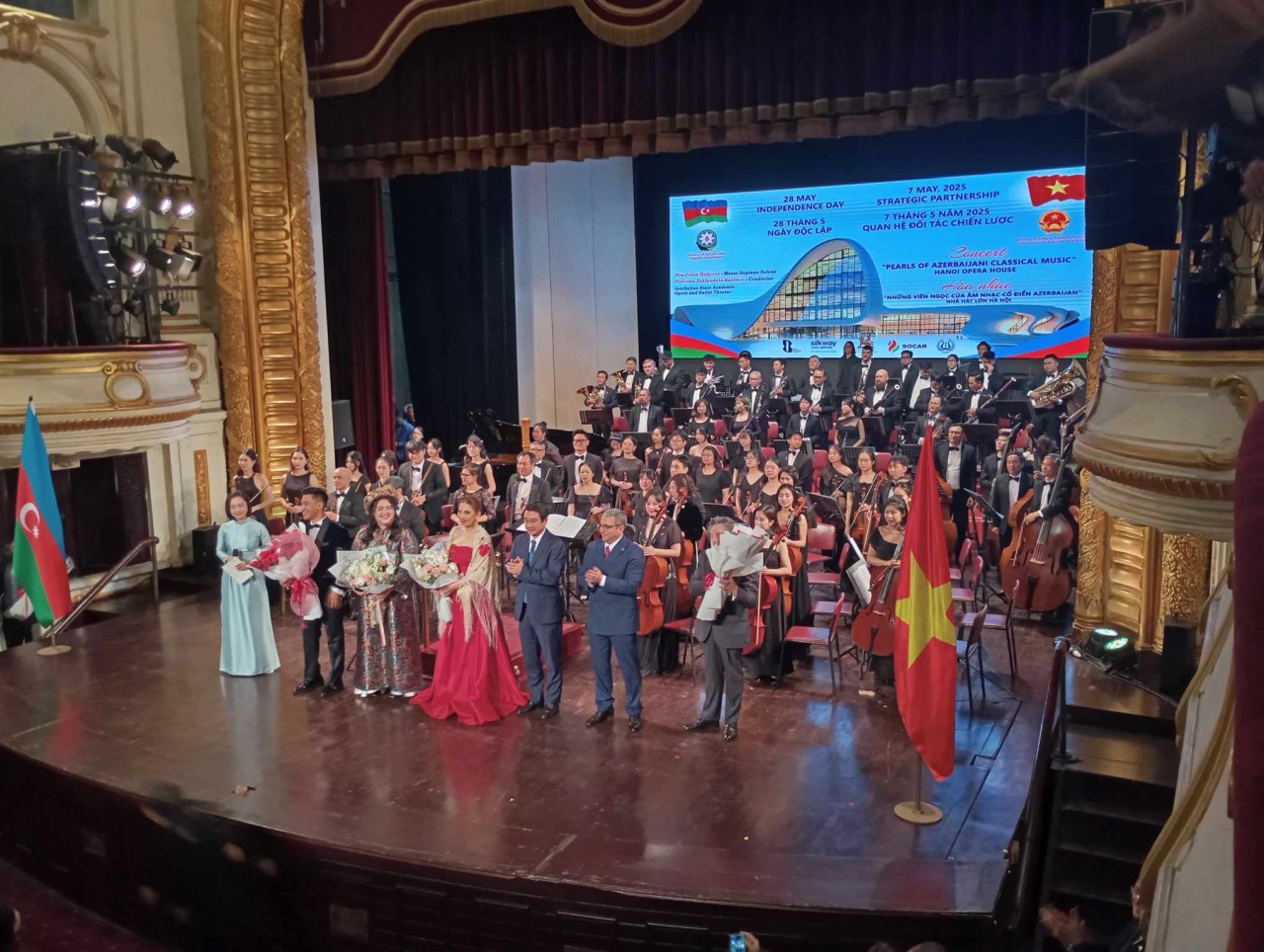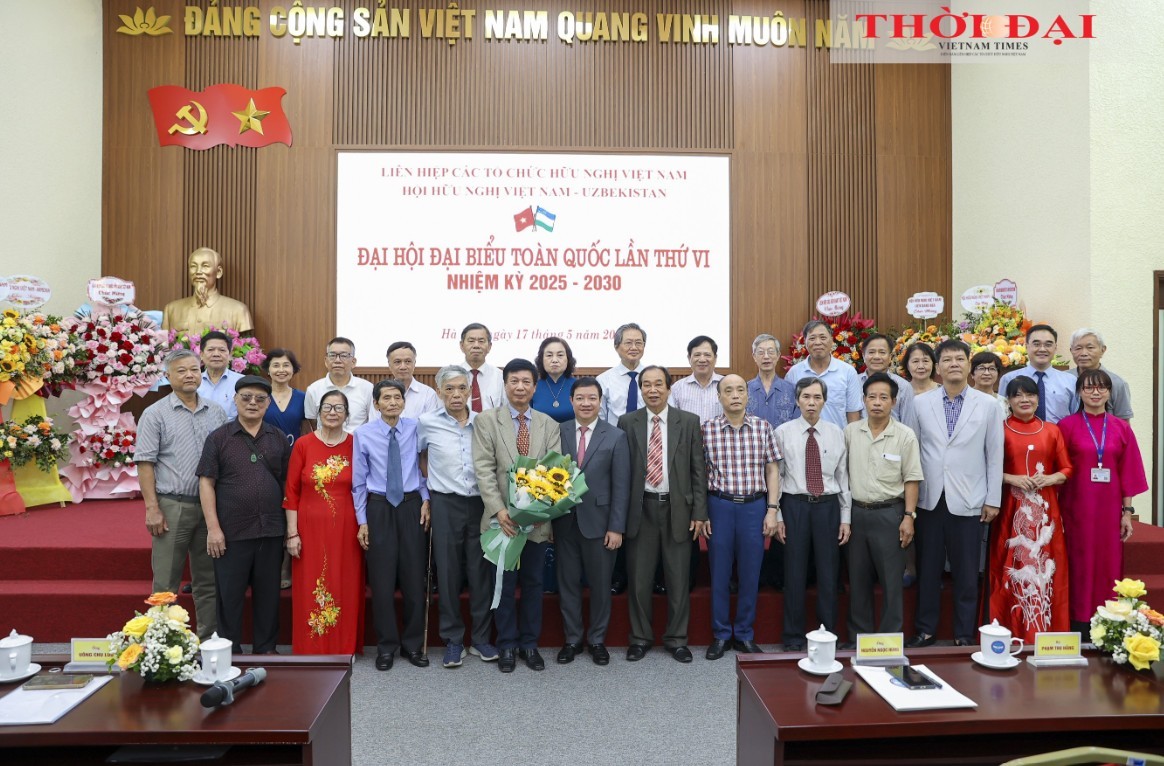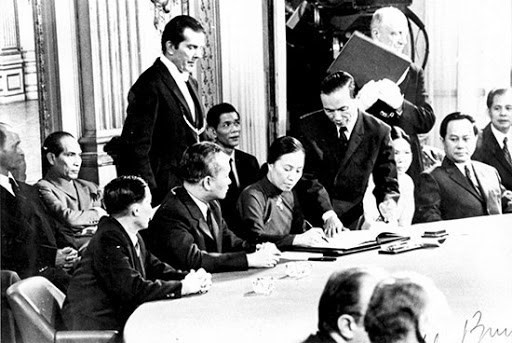Events in Hanoi to Celebrate 50th Anniversary of the Paris Peace Accord
These events, which welcome 30 international delegates from 13 countries, will be the platform for historical witnesses who directedly contributed to the success of the Paris Conference to share their own stories.
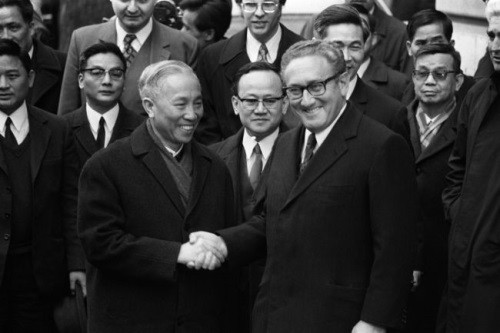 |
| Mr. Le Duc Tho (left) and Mr. Henry Kissinger at the Initialling Ceremony of the Paris Peace Accords of 1973 |
According to the Organizing Committee, this is an opportunity to show gratitude for the solidarity and support of international friends for Vietnam since wartime til now. At the same time, it is to affirm the role of Vietnam as a friend, a reliable partner of all countries and a responsible member of the international community.
Regarding the success of the Paris Conference, Ambassador Nguyen Phuong Nga, VUFO President stressed: "The Paris Agreement is an ever-lasting milestone in the history of Vietnam's diplomacy and the process to build and defend the country. It is the first time Vietnam as an independent and sovereign country negotiated with a big country who is a member of the Security Council."
"This success proves the strength of Vietnamese diplomacy, it is the victory of Ho Chi Minh's ideaology on people-to-people diplomacy combined with the peace-loving nature of Vietnamese people. It is a harmonious combination between negotiation with the battlefield victory, and the fight to protect socialism in Northern Vietnam. The success of the Paris Agreement is also a lively, harmonious and skillful combination between the strength of the nation and the current force, strength of the times, between the will for peace and national independence across the world, the strength of the international delegation," affirmed Ambassador Nguyen Phuong Nga.
Notably, Nga said that valuable lessons learned from the Paris Conference and the Paris Agreement are still valid, especially in the complicated global context.
The first lesson is the strong will to protect the nation. During the negotiation phase leading to the signing of the Paris Agreement, the people wanted peace, ending the war, and independence, sovereignty, and territorial integrity for the nationa. That strong will continues even til today, in which people want to protect a peaceful and stable environment for national construction and development. We not only also want to continue to build and maintain the country's independence, sovereignty, unity and territorial integrity; but also to improve the prestige and position of Vietnam internationally.
The second is the people's strength, the support and solidarity of the international people for Vietnam's national construction and defense. This lesson help Vietnamese people in the country's developing stage so that international friends can see the beautiful image of Vietnam. At the same time, we must also fulfill the obligations to the international community, from small acts such as donating masks, protective equipment to prevent the spread of the Corona virus. It also to contribute to the tasks like sending officials, soldiers to the UN peacekeeping force in farawat countries, living in difficult conditions.
The third is the coordination between diplomatic agencies, departments and branches in the entire political system to strengthen and unify Vietnam's internal forces in dealing with foreign affairs. When there is consensus both domestically and internationally, then we have great strength.
Exhibition spotlights Paris Conference's success
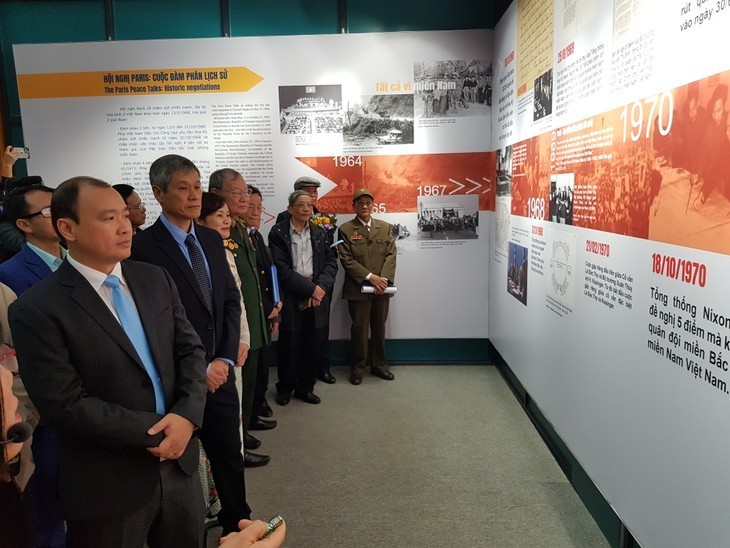 |
| Visitors to the exhibition "Paris Conference - Historical Negotiations" |
Recently, the exhibition "Paris Conference - Historical Negotiation" opened in Hanoi from January 5, introducing more than 200 documents, images and artifacts that are being preserved in domestic and foreign storage centers.
The exhibition consists of three parts: "Towards negotiations in Paris," "Paris Conference-The Fierce Confrontation." and "Paris Peace Accords - a brilliant Historical Milestone."
The negotiation process in Paris which lasted nearly 5 years (from May 13, 1968 to January 27, 1973) was recreated through 2 stages.
The first phase concerns bilateral talks while lasted from May 13 to October 31, 1968: the Democratic Republic of Vietnam demanded that the US ends the war from October 31, 1968 and agrees to convene a meeting between the governments of the Democratic Republic of Vietnam; the Republic of Vietnam; the United States; and the Republic of South Vietnam which represented South Vietnamese communists.
The second which lasted from January 25, 1969 to January, 1973 involves the talks between the 4 parties. The Democratic Republic of Vietnam and the Provisional Revolutionary Government of the Republic of South Vietnam insisted that the US ends the war, withdraws troops from Vietnam, and respects the right to self-governance of the Southern Vietnamese. In respond, the US would agree to end the war under the conditions that the North also withdraw from the frontline, and they get to maintain their Demilitarized Zone (DMZ) and Saigon’s government.
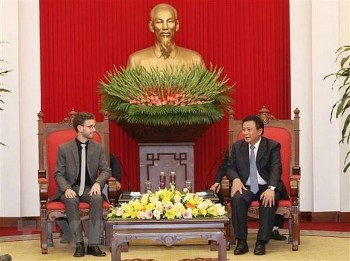 | Party Official Hosts Leader of Germany’s Left Party The Communist Party of Vietnam (CPV) attaches great importance to cooperation with ruling and political parties of countries, including the exchange of theories and policies, ... |
 | Vietnam, Germany Cooperate to Fight against Future Pandemics An environmental microbiology laboratory, which is capable of detecting pandemic viruses through testing wastewater samples, will be set up at Vietnamese - German University with ... |
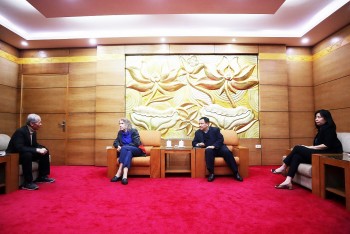 | Two Precious Books on Paris Peace Accords to be Republished Representatives from the Viet Nam Union of Friendship Organizations (VUFO)’s Americas Department have hosted a reception for Lady Borton - an American journalist, writer, translator ... |
 Friendship
Friendship
Choisy-le-Roi City Shares Common Values on Peace, Solidarity with Vietnam
Recommended
 Focus
Focus
Vietnam Leaves Imprints on the World Peacekeeping Map
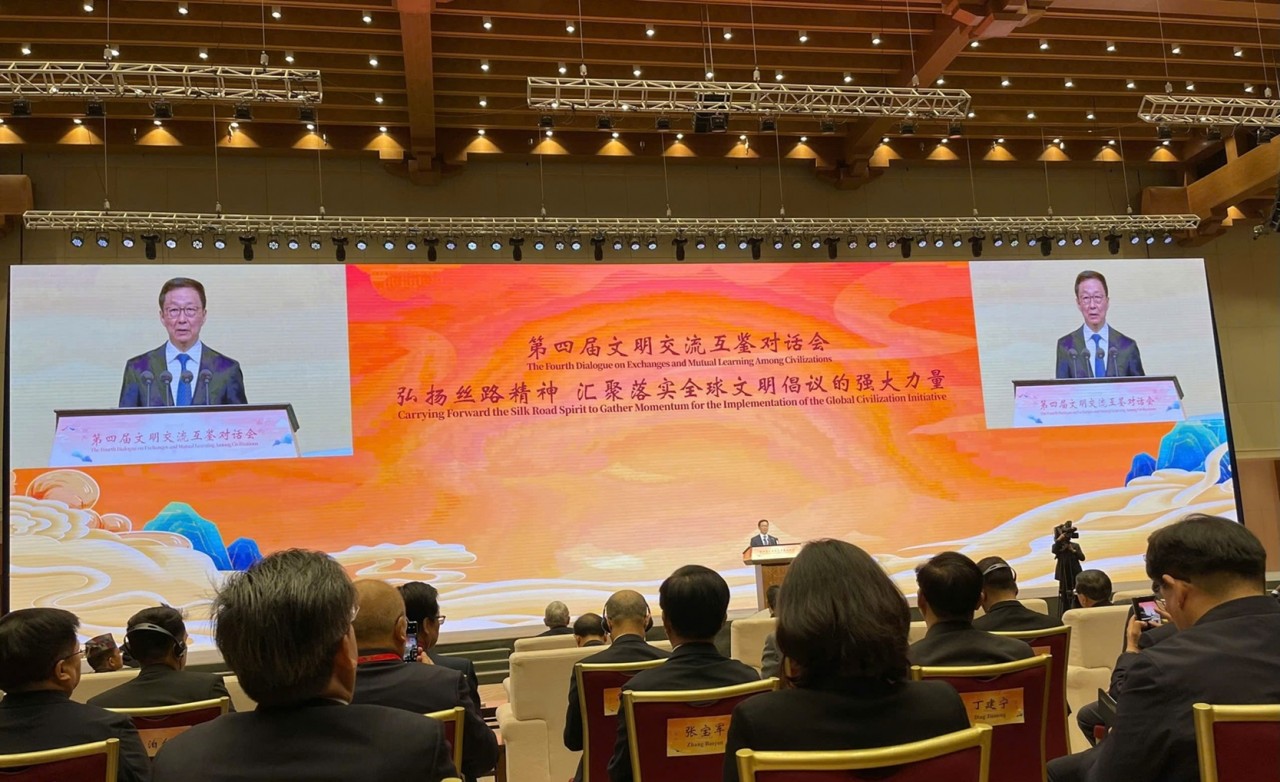 Friendship
Friendship
VUFO Attends Fourth Dialogue on Exchange and Mutual Learning among Civilizations
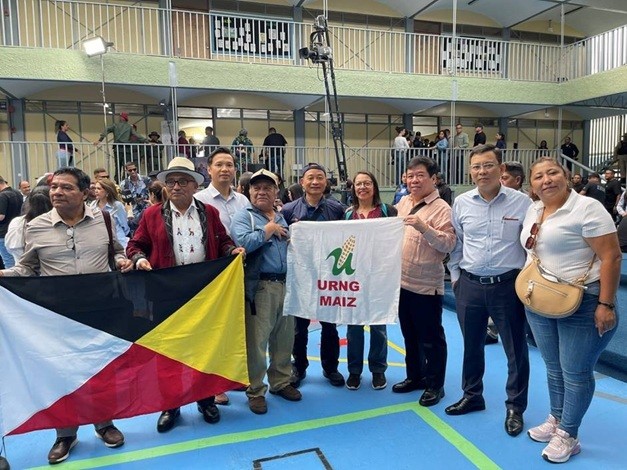 Focus
Focus
Strengthen Solidarity and Friendship Between Vietnam and Venezuela
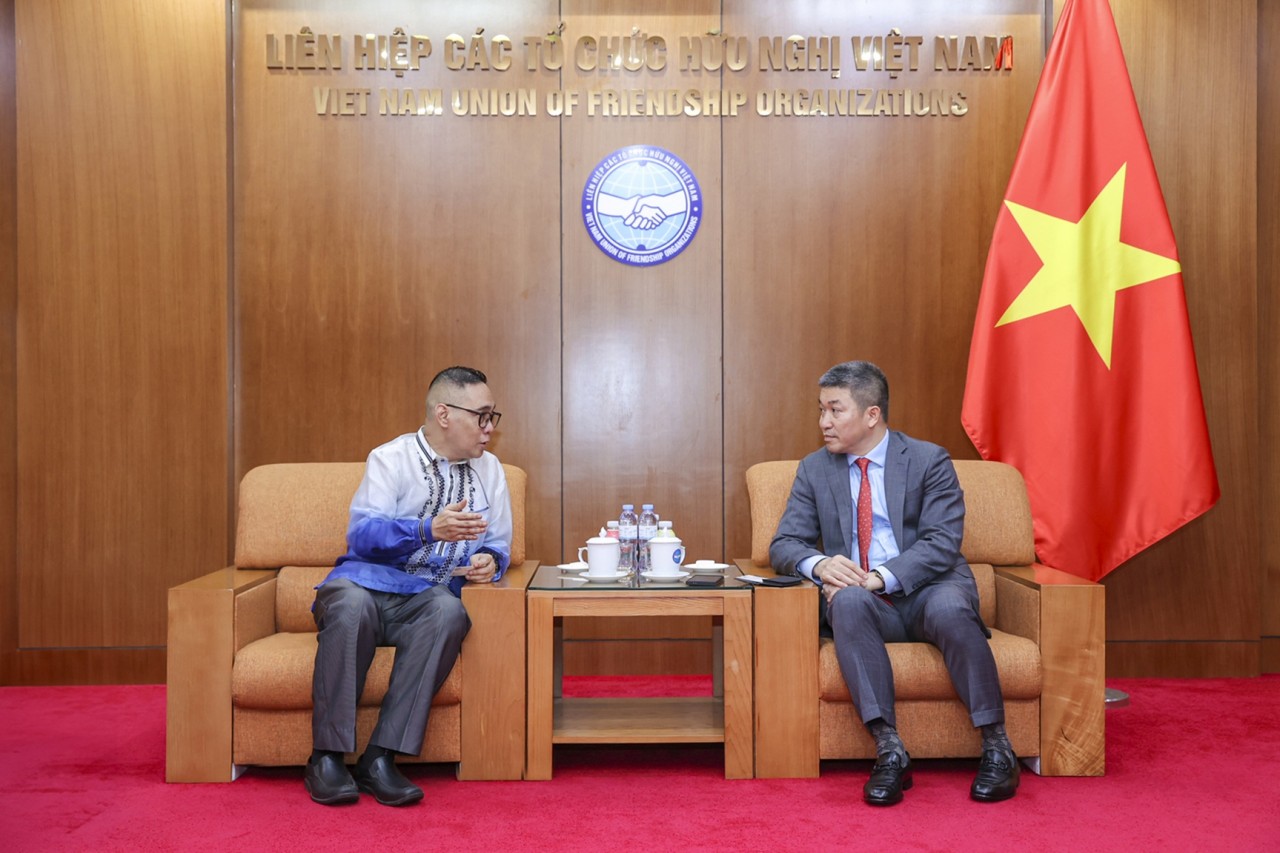 Friendship
Friendship
VUFO Supports Initiatives to Enhance People-to-people Exchanges between Vietnam and the Philippines
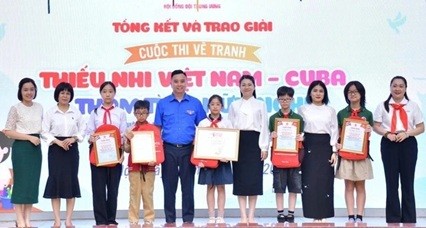 Focus
Focus
"Vietnamese - Cuban Children, Deep Friendship" Painting Contest Announces Winners
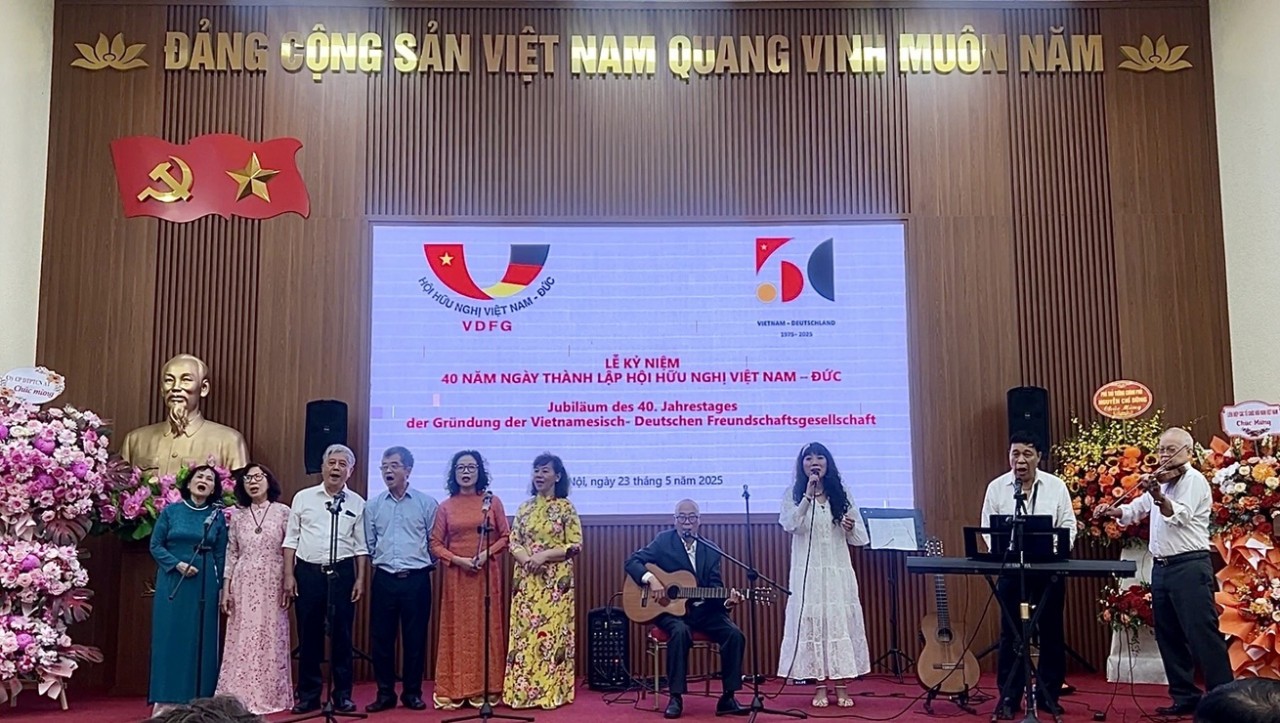 Focus
Focus
Solid Bridge for People-to-people Relations between Vietnam and Germany
 Focus
Focus
35 Years of FES in Vietnam: Fostering Dialogue, Advancing Equity
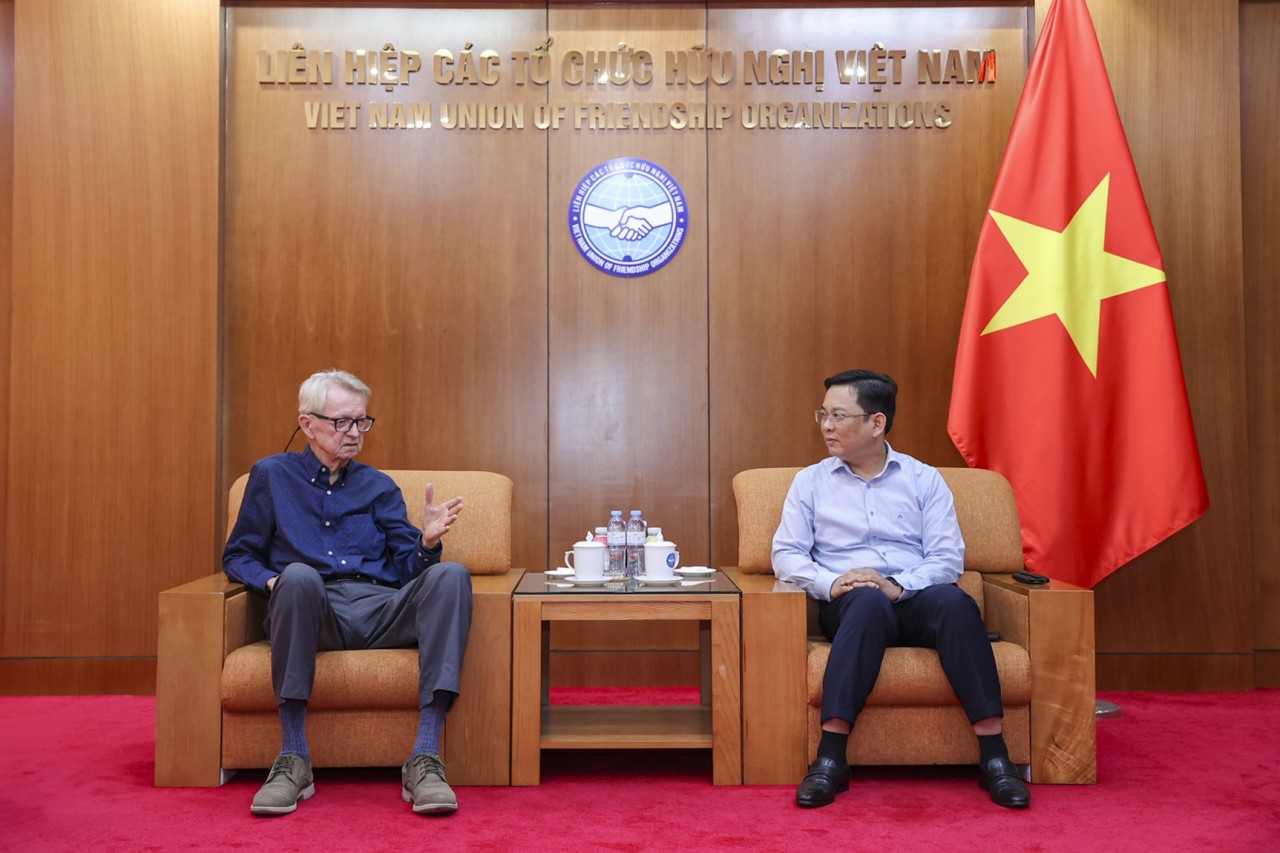 Friendship
Friendship

